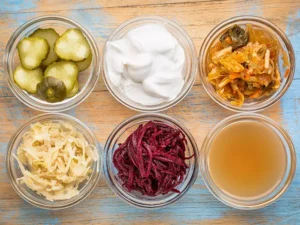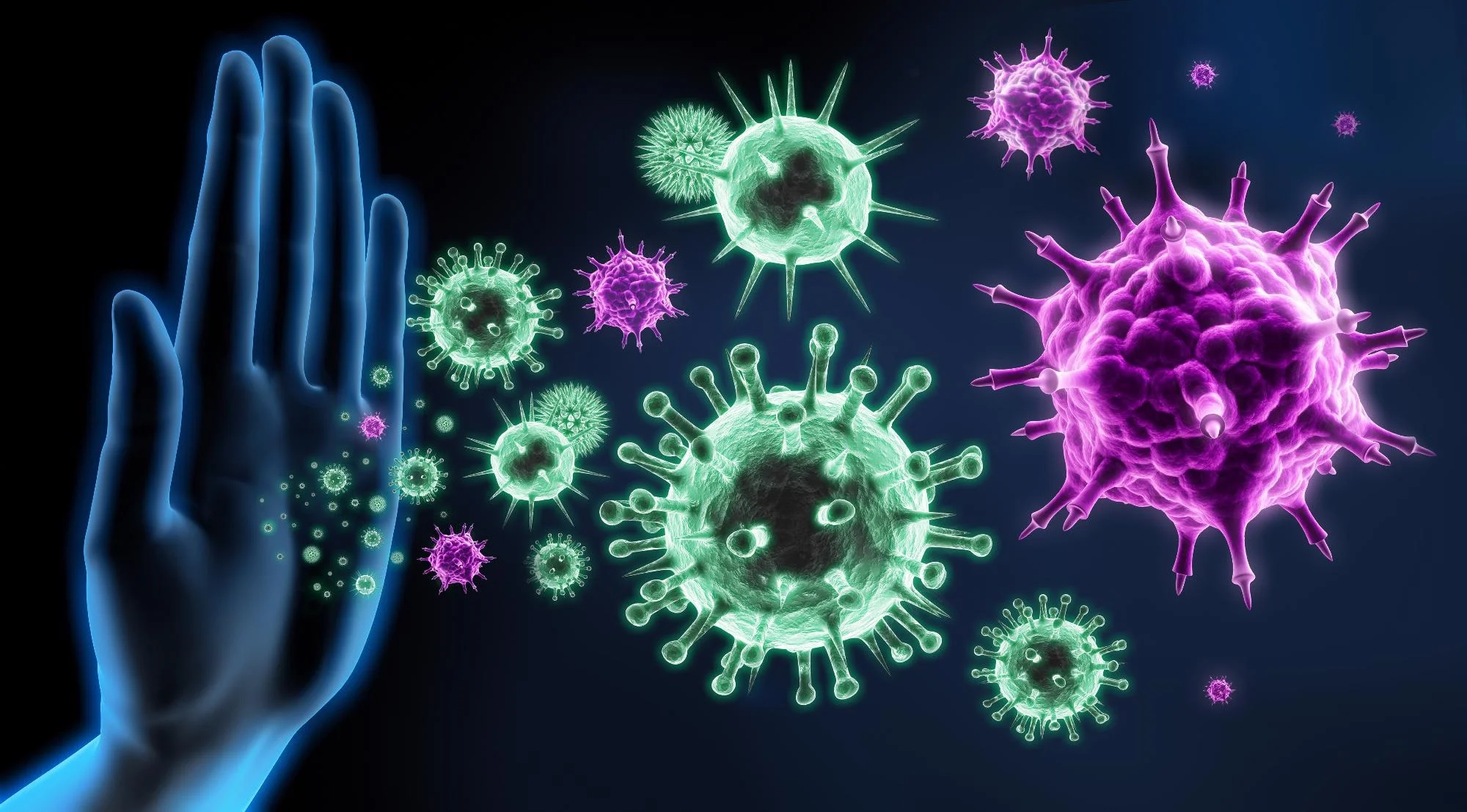How Your Microbiome and Gut Health Affects Overall Well-Being
Introduction
Within the depths of your digestive system lies a world of microorganisms that holds profound sway over your health and well-being. This intricate ecosystem, known as the gut microbiome, is far more than a mere collection of bacteria. In this article, we delve into the intricate web of your microbiome’s influence, unveiling how its delicate balance shapes not only your digestive health but also your overall well-being.
The Microbial Universe Within
Picture your gut as a bustling metropolis teeming with trillions of microscopic residents. Bacteria, viruses, fungi, and other microorganisms form a complex community that operates in harmony with your body. This dynamic microbiome interacts with your immune system, brain, metabolism, and more, exerting a far-reaching impact on various aspects of your health.

The Gut-Brain Connection
Surprisingly, your gut and brain share a direct line of communication. The gut-brain axis orchestrates a symphony of signals that influence mood, emotions, and even cognitive function. Discover how the balance of your microbiome can sway the delicate equilibrium of your mental well-being.

Immunity and Beyond
Your gut plays an indispensable role in fortifying your immune system. A harmonious microbiome bolsters your body’s defense against pathogens while helping to prevent autoimmune reactions. Unveil the profound connection between gut health and your body’s ability to fend off illnesses.

Nutrient Extraction and Metabolic Harmony
The intricate inhabitants of your gut aid in the breakdown and absorption of nutrients from your diet. A thriving microbiome contributes to optimal nutrient extraction, energy production, and metabolic balance. Explore how the balance of your microbiome can influence your weight and overall metabolic health.

Inflammation and Chronic Conditions
The delicate balance of your gut microbiome is closely linked to inflammation levels within your body. Chronic inflammation has been implicated in various health conditions, from digestive disorders to heart disease and diabetes. Uncover the intricate dance between your microbiome and inflammation, and how it can impact your long-term health.

The Gut’s Dietary Symphony
Your diet serves as a conductor that shapes the composition and diversity of your gut microbiome. Certain foods, like fiber-rich fruits and vegetables, nurture beneficial bacteria, while processed foods can disrupt this delicate harmony. Learn how you can optimize your diet to support a thriving microbial community.

Nurturing a Flourishing Microbiome
Maintaining a balanced and diverse microbiome requires conscious care. Explore strategies for nurturing your gut health, including incorporating probiotic-rich foods, prebiotics, and fermented delights into your diet. Discover how lifestyle factors, such as sleep, stress management, and regular exercise, contribute to a thriving microbiome.

Antibiotics, Medications, and the Microbiome
Certain medications, including antibiotics, can disrupt the equilibrium of your gut microbiome. Understand the implications of medication use and explore ways to mitigate potential disruptions while still benefiting from necessary treatments.

The Future of Gut Health
As scientific understanding of the gut microbiome deepens, so does the potential for personalized health interventions. Delve into the world of probiotics, microbiome testing, and emerging research that holds promise for harnessing the power of your microbiome to optimize your well-being.
FAQs
Q: What is the microbiome?
A: The microbiome is the collection of microbes, or microorganisms, that live in and on your body. These microbes include bacteria, viruses, fungi, and protozoa. The microbiome is found in many different parts of your body, including your gut, skin, and mouth.
Q: What is gut health?
A: Gut health refers to the overall health of your gut microbiome. A healthy gut microbiome is essential for overall well-being. It helps to digest food, absorb nutrients, and fight off infection.
Q: How does the microbiome affect overall well-being?
A: The microbiome affects overall well-being in many ways. Here are some of the ways the microbiome affects overall well-being:
- Digestion and absorption of nutrients: The microbiome helps to digest food and absorb nutrients. This is important for maintaining a healthy weight and preventing nutrient deficiencies.
- Immunity: The microbiome helps to fight off infection. This is important for preventing illness and maintaining good health.
- Mental health: The microbiome may also play a role in mental health. Some studies have shown that people with mental health conditions, such as depression and anxiety, have different gut microbiomes than people who do not have these conditions.
- Energy levels: The microbiome may also play a role in energy levels. Some studies have shown that people with healthy gut microbiomes have more energy than people with unhealthy gut microbiomes.
- Skin health: The microbiome may also play a role in skin health. Some studies have shown that people with healthy gut microbiomes have better skin health than people with unhealthy gut microbiomes.
Q: What are some factors that can affect the microbiome?
A: There are many factors that can affect the microbiome, including:
- Diet: The foods you eat can have a big impact on your gut microbiome. Eating a healthy diet that includes plenty of fruits, vegetables, and whole grains can help to promote a healthy gut microbiome.
- Stress: Stress can also affect the microbiome. Chronic stress can lead to changes in the gut microbiome, which can increase the risk of illness.
- Medications: Some medications, such as antibiotics, can also affect the microbiome. Antibiotics can kill off beneficial bacteria in the gut, which can lead to imbalances in the microbiome.
- Age: The microbiome changes as you age. Older adults tend to have less diverse gut microbiomes than younger adults.
- Environment: The environment you live in can also affect the microbiome. Exposure to pollution and other environmental toxins can damage the gut microbiome.
Q: What are some things you can do to improve gut health?
A: There are many things you can do to improve gut health. Here are some tips:
- Eat a healthy diet: Eating a healthy diet that includes plenty of fruits, vegetables, and whole grains can help to promote a healthy gut microbiome.
- Manage stress: Stress can also affect the microbiome. Finding ways to manage stress, such as exercise, yoga, or meditation, can help to improve gut health.
- Avoid antibiotics: Antibiotics can kill off beneficial bacteria in the gut, which can lead to imbalances in the microbiome. If you need to take antibiotics, talk to your doctor about ways to protect your gut health.
- Probiotics: Probiotics are live bacteria that can be beneficial for gut health. You can get probiotics from fermented foods, such as yogurt, kefir, and sauerkraut, or from supplements.
- Prebiotics: Prebiotics are non-digestible food ingredients that promote the growth of beneficial bacteria in the gut. You can get prebiotics from foods such as onions, garlic, and asparagus.
Q: Where can I find more information about the microbiome and gut health?
A: There are many resources available to learn more about the microbiome and gut health. Here are a few suggestions:
- The website of the National Institutes of Health (NIH) has a section on the microbiome.
- The website of the American Gut Project has information about the microbiome and how to participate in research.
- The website of the International Scientific Association for Probiotics and Prebiotics has information about probiotics and prebiotics.
Conclusion
Your gut microbiome is more than a mere bystander in your health journey—it’s an active player with a significant role. As we unveil the intricate web of connections between your gut and overall well-being, remember that nurturing a flourishing microbiome is a lifelong endeavor. Through conscious dietary choices, mindful lifestyle habits, and a deeper understanding of this microbial universe, you hold the power to cultivate a vibrant symphony of health within your own body.

